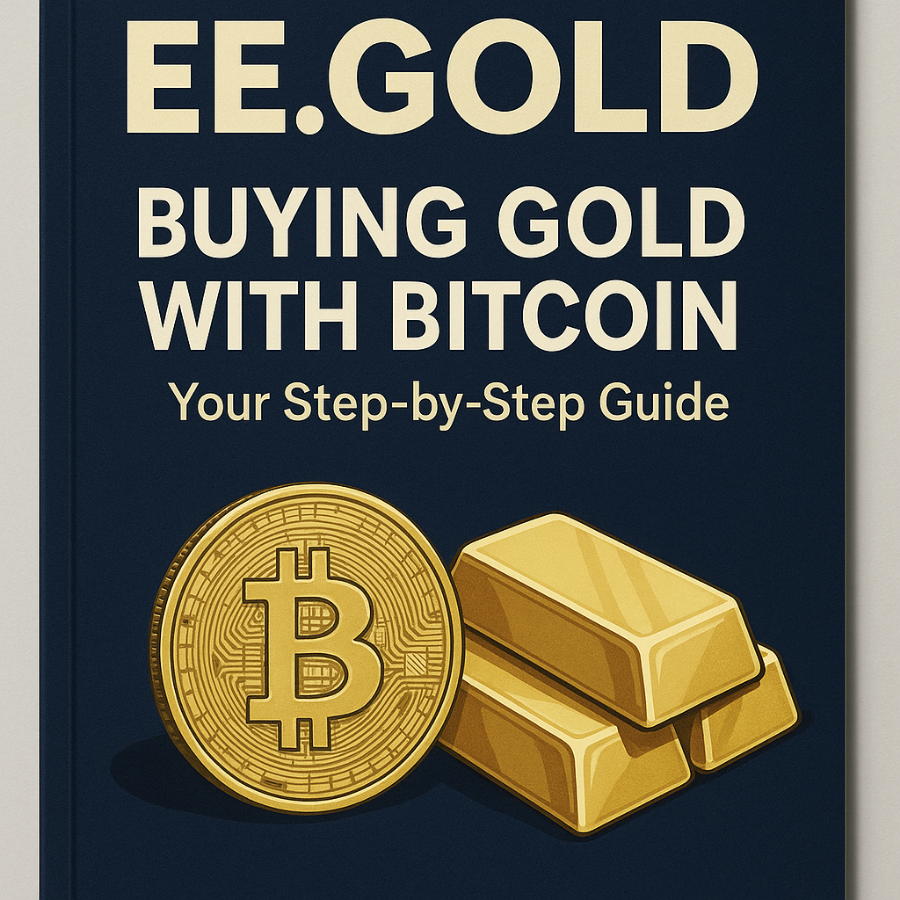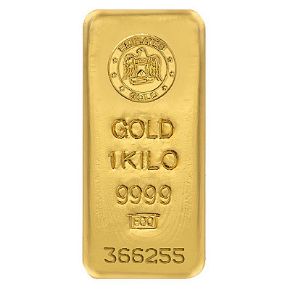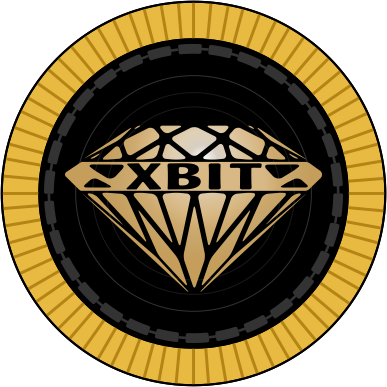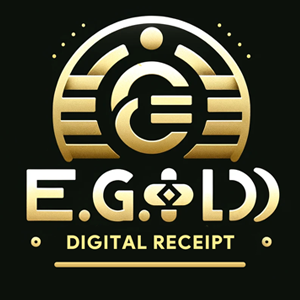
The world of cryptocurrency and digital assets has evolved significantly over the past few years, and with it, the ways in which investors can diversify their portfolios. Among the most popular digital currencies, Bitcoin has firmly established itself as a store of value and an alternative investment option. On the other hand, gold has been a long-standing asset for wealth preservation, providing a hedge against inflation and economic instability.
With these two assets gaining traction in global markets, a growing number of investors are exploring ways to leverage Bitcoin as a method to purchase physical gold. However, buying gold with Bitcoin is not as simple as transferring digital coins to a seller in exchange for a physical commodity. It involves understanding the nuances of both cryptocurrency and gold markets, as well as navigating the complexities of taxation and reporting.
In this step-by-step guide, we’ll explore the process of buying gold with Bitcoin and outline strategies for tax optimization, helping you understand both the investment and the legal implications of this transaction.
1. Understanding the Basics: Bitcoin and Gold as Investment Assets
Before delving into the mechanics of buying gold with Bitcoin, it’s essential to understand the individual roles that Bitcoin and gold play as investment assets.
Bitcoin: A Digital Asset and Store of Value
Bitcoin is the most well-known and widely used cryptocurrency. Created in 2009 by the pseudonymous figure Satoshi Nakamoto, Bitcoin operates on a decentralized network, with transactions secured through a process called blockchain technology. Over the years, Bitcoin has gained recognition as a store of value, often compared to gold due to its limited supply (21 million bitcoins) and its ability to serve as a hedge against fiat currency devaluation.
Bitcoin's value is subject to significant volatility, but many investors view it as a long-term asset that can appreciate in value over time. The rise of institutional investors, combined with increasing mainstream acceptance, has further cemented Bitcoin’s role in modern portfolios.
Gold: A Tangible Asset for Wealth Preservation
Gold, a tangible asset with thousands of years of history, has served as a safe haven for investors during periods of economic uncertainty. Unlike Bitcoin, which operates in the digital world, gold is a physical commodity that can be bought, sold, and stored in a variety of forms, including bullion, coins, and jewelry. Many investors flock to gold in times of market volatility because it tends to hold its value or even appreciate when fiat currencies and stocks are under pressure.
Gold also benefits from its status as a universal store of wealth, making it appealing for individuals seeking to hedge against inflation and currency devaluation. The asset has stood the test of time and remains one of the most widely respected methods of preserving wealth.
2. How to Buy Gold with Bitcoin
Once you understand Bitcoin and gold as separate assets, the next step is to explore how to use Bitcoin to purchase physical gold. There are several ways to do this, each with varying levels of complexity and tax implications.
Option 1: Cryptocurrency Gold Dealers
A growing number of online platforms and gold dealers now allow customers to buy gold directly using Bitcoin. These platforms facilitate Bitcoin-to-gold transactions, providing an easy way for individuals to convert their digital currency into physical gold.
Some of the prominent gold dealers and platforms that accept Bitcoin include:
JM Bullion: An online precious metals dealer that accepts Bitcoin payments for the purchase of gold, silver, and other precious metals.
APMEX: Another well-known precious metals retailer that allows Bitcoin purchases for a variety of precious metal products.
CoinInvest: A European-based platform offering a selection of gold bars, coins, and other precious metals available for Bitcoin payment.
To buy gold through these platforms, you would typically follow these steps:
Select Your Gold: Choose from a range of gold products, including bullion coins or bars.
Select Bitcoin as Your Payment Option: During checkout, select Bitcoin as your payment method. The platform will generate a unique Bitcoin wallet address to which you can send your payment.
Send the Bitcoin: Transfer the specified amount of Bitcoin to the provided wallet address.
Receive Your Gold: Once the Bitcoin payment is confirmed (usually within a few minutes to an hour, depending on blockchain congestion), the platform will process your order and ship your physical gold.
Option 2: Peer-to-Peer Marketplaces
For more flexibility, some individuals turn to peer-to-peer (P2P) marketplaces, such as LocalBitcoins or Paxful, which allow users to exchange Bitcoin for various goods and services, including gold. On these platforms, you can negotiate directly with sellers who accept Bitcoin in exchange for gold.
P2P platforms have the advantage of offering a broader range of payment options and potentially better rates. However, they also come with added risks, such as the possibility of encountering fraudulent sellers or disputes.
Option 3: Bitcoin-Backed Gold ETFs
For those seeking exposure to gold without physically holding it, Bitcoin-backed gold exchange-traded funds (ETFs) are an option. These financial products typically hold physical gold in reserve and offer a way to invest in the value of gold through a Bitcoin-friendly structure. While this option does not involve purchasing physical gold, it allows for indirect exposure to gold’s price movements through Bitcoin.
Some platforms, like Grayscale, offer cryptocurrency-based ETFs or funds that include gold as part of their portfolio, allowing Bitcoin investors to gain exposure to gold with a single investment vehicle.
3. Tax Implications of Buying Gold with Bitcoin
One of the most important considerations when buying gold with Bitcoin is understanding the tax implications of such a transaction. The Internal Revenue Service (IRS) in the United States and tax authorities in other countries treat Bitcoin as property, not currency. This distinction has significant tax consequences for anyone buying gold with Bitcoin.
Capital Gains Tax on Bitcoin Transactions
When you use Bitcoin to purchase physical gold, you are effectively selling your Bitcoin to acquire the gold. Since Bitcoin is considered property, the sale of Bitcoin triggers capital gains tax on any appreciation in value since the time you acquired it. This means that if your Bitcoin has increased in value from the time you purchased it to the time of the transaction, you’ll owe taxes on the gain.
For example, if you purchased 1 Bitcoin for $10,000 and its value has risen to $15,000 by the time you buy gold with it, you have a $5,000 capital gain. The tax rate on your gain will depend on how long you held the Bitcoin before selling it:
Short-Term Capital Gains: If you held the Bitcoin for one year or less before using it to purchase gold, your capital gains will be taxed at the ordinary income tax rate, which can range from 10% to 37% in the U.S.
Long-Term Capital Gains: If you held the Bitcoin for more than one year, your capital gains will be taxed at the long-term capital gains rate, which typically ranges from 0% to 20%, depending on your income.
Reporting the Transaction
It’s crucial to report any Bitcoin-to-gold transactions on your tax return. The IRS requires individuals to report any capital gains or losses from the sale of property, including cryptocurrencies. Failing to report such transactions can result in penalties or audits.
When reporting Bitcoin transactions, it’s important to keep detailed records, including:
The date of purchase of the Bitcoin.
The amount you paid for the Bitcoin (the cost basis).
The date you used the Bitcoin to purchase gold.
The value of Bitcoin at the time of the purchase (fair market value).
The amount of gold purchased.
Sales Tax on Gold Purchases
In some jurisdictions, the purchase of gold may be subject to sales tax, depending on the type of gold being bought and the location of the transaction. Some states or countries exempt gold bullion or coins from sales tax, while others impose tax on the sale of gold. If you are purchasing gold through an online dealer, be sure to check the applicable sales tax rules in your jurisdiction.
4. Tax Optimization Strategies When Buying Gold with Bitcoin
There are several strategies you can employ to minimize your tax liability when buying gold with Bitcoin.
Tax-Loss Harvesting
One strategy is tax-loss harvesting, which involves selling other investments that have declined in value to offset the capital gains from your Bitcoin sale. By realizing losses on other investments, you can reduce the overall tax burden on your gains.
For example, if you have other assets in your portfolio that have lost value, you could sell them at a loss to offset the $5,000 capital gain from using Bitcoin to purchase gold. This strategy can help lower your taxable income.
Donating Bitcoin to Charity
Another strategy is to donate your Bitcoin to a qualified charity. Bitcoin donations are generally tax-deductible, and if you donate the Bitcoin directly (rather than selling it and donating the proceeds), you won’t incur any capital gains tax on the appreciation. This can be an effective way to both reduce your tax liability and support a cause you care about.
Use a Self-Directed IRA
For those looking to hold both Bitcoin and gold in a tax-advantaged account, consider using a self-directed Individual Retirement Account (IRA). A self-directed IRA allows you to invest in a wide range of assets, including Bitcoin and gold, without triggering immediate tax consequences. However, there are specific rules and fees associated with these accounts, so it’s important to consult with a financial advisor or tax professional before setting one up.
Plan Your Bitcoin Sales
To optimize your tax situation, consider timing your Bitcoin sale to coincide with a period when your overall income is lower, such as during retirement or after a year with other significant losses. This strategy can help reduce your tax liability by placing the capital gains into a lower tax bracket.
Buying gold with Bitcoin is an increasingly popular way to diversify one’s portfolio by combining the benefits of digital currency with the stability of precious metals. While the process can be straightforward, understanding the tax implications of such transactions is essential to ensure that you remain compliant with tax laws and minimize your tax liability.
By keeping accurate records, employing tax optimization strategies, and working with a tax professional, you can make the most of your Bitcoin-to-gold transactions, securing your wealth in both digital and physical forms.
NOTE
This Content is the copyrighted content of EE.GOLD. All rights are reserved. You are welcome to share or use our content only by including direct links to our website. Any other form of reproduction, distribution, or use without proper attribution is strictly prohibited.
This Content is intended solely for educational purposes. The information provided does not constitute financial or investment advice.
Please note that Digital Storage Receipt, Secure Storage Solutions, and Physical Gold Sales are the only services offered by EE.GOLD.
We strictly adhere to government regulations and are firmly against all illegal financial or investment activities globally.
For further inquiries, feel free to contact us through our official channels.










.png)

